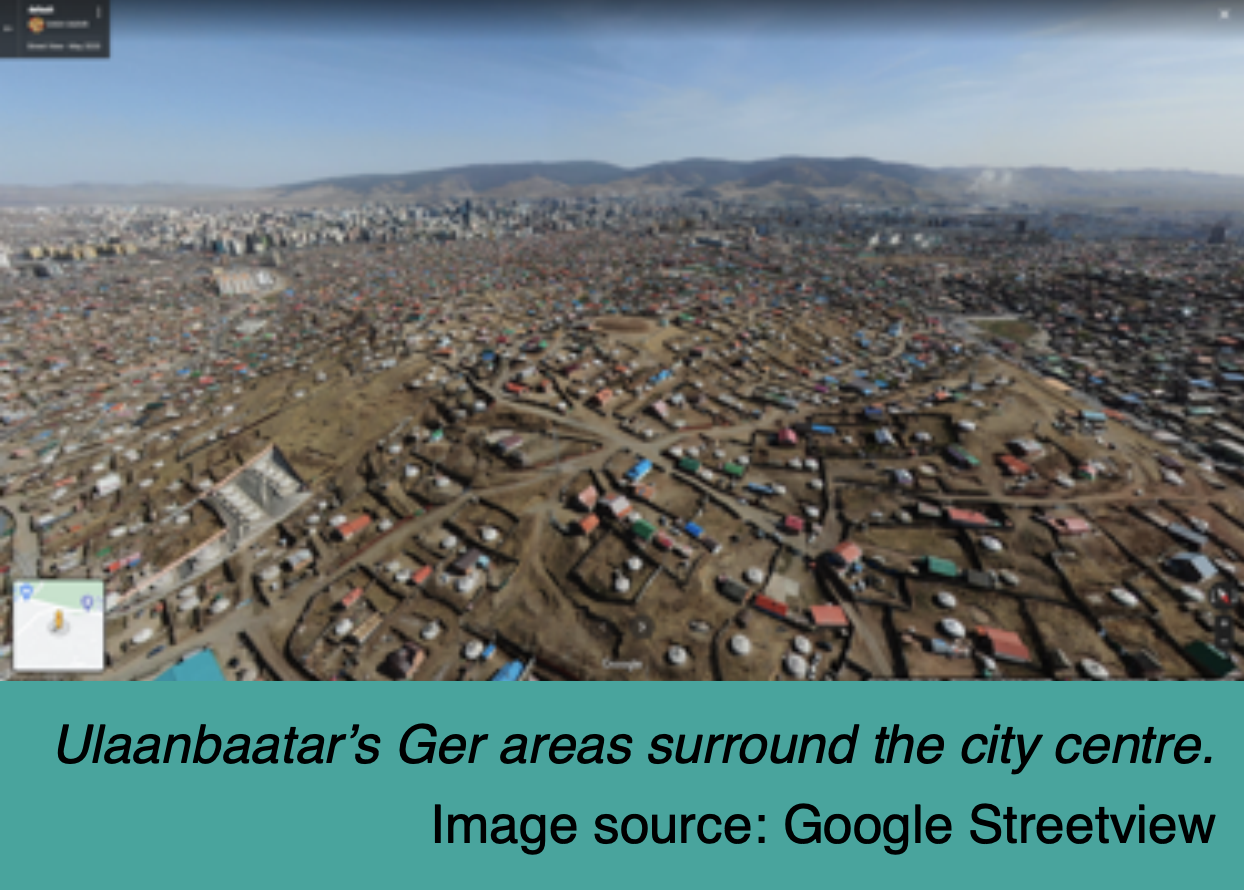An online launch of the AT2030 Inclusive Infrastructure Case Study in Ulaanbaatar, Mongolia.
‘Creating more inclusive cities with people with disabilities in Mongolia’
| Global Disability Innovation Hub (GDI Hub) and partners are delighted to announce the publication of their case study on ‘Inclusive Design and Accessibility in Ulaanbaatar, Mongolia’. The report is now available in both English and Mongolian. This case study is part of the UK Aid funded AT2030 programme, which looks at ‘what works’ to deliver life changing assistive technology for all.
Between May and October 2020, GDI Hub, AIFO, Tegsh Niigem and the Asian Development (ADB) conducted research to understand the lived experience of people with disabilities living in Ulaanbaatar and identify challenges and opportunities for implementing inclusive design. |
 |
Webinar
On Thursday May 6th an online launch event was held, bringing together key stakeholders in the domains of disability inclusion and inclusive design and urban development in Mongolia. The session provided key findings from the research conducted in Ulaanbaatar. Opportunities to deliver on inclusive design were discussed, highlighting the importance of partnerships and the participation of people with disabilities. We heard from:
• His Excellency Mr Philip Malone LVO, Her Britannic Majesty’s Ambassador to Mongolia,
• Ariunzaya Ayush, The Minister of Labour and Social Protection, Government of Mongolia
• Asian Development Bank (ADB)
• GDI Hub and our research partners AIFO, Universal Progress ILC and Tegsh Niigem.
GDI Hub
Global Disability Innovation Hub (GDI Hub) is a research and practice centre driving disability innovation for a fairer world. Operational in 35 countries, across a portfolio of £50m, GDI Hub has reached 12 million people since its launch in 2016. We are solutions-focused experts in Assistive Technology, Inclusive Design, and Culture and Participation, GDI Hub supports and delivers world-class Research, Teaching, Innovation,Programmes and Advocacy.
AT2030
AT2030 tests ‘what works’ to improve access to life-changing Assistive Technology (AT) for all; investing £20m over 5 years to support solutions to scale. Led by Global Disability Innovation Hub and funded by UK aid, AT2030 will reach 9 million directly and 6 million more indirectly, driving a lifetime of potential. AT2030 is operational in 31 countries globally.
AIFO
AIFO is a grassroots organisation with groups and regional coordination covering the whole of Italy. It is also an international network organisation with member associations in India, Brazil and Mongolia and has an official relationship with the World Health Organisation (WHO). In Mongolia, AIFO is working since 1991 in implementing Community Based Rehabilitation approach for people with disabilities (CBR). AIFO opened its Country Coordination Office in 1996 in Ulaanbaatar city. AIFO pursues the international slogan “Nothing about us without us” in all the actions in country. All AIFO’s activities are implemented with the active participation of people with disabilities as they are the experts. On the basis of 29 years of experience working in disability field in Mongolia, AIFO recognises the potential people to contribute to the development of disability sector and has a long history of training and support.
Tegsh Niigem
Tegsh Niigem NGO was established in 2006 to contribute to improve quality of life of the persons with disabilities through Community Based Rehabilitation approach (CBR) for people with disabilities and implementing UN Convention on the rights of the persons with disabilities (UNCRPD). Tegsh Niigem implemented sub-grant project on the employment of people with disabilities under GSP+ scheme and has implemented two EU co-funded projects in collaboration with AIFO and other national DPOs. Tegsh Niigem also contributed to elaborate the new law on the rights of persons with disabilities, which was adopted by the Parliament of Mongolia in 2016. Since January 2017, Tegsh Niigem is member of the National Steering Committee on disability, headed by the Minister of Labor and Social Protection. Tegsh Niigem NGO has submitted two shadow reports to the UNCRPD Committee in 2015 and 2018.
Universal Progress ILC
The Universal Progress Center is the first independent living center in Mongolia created by people with disabilities. The center aims to create an inclusive environment for everyone, promote the social participation of people with disabilities, provide services to support independent living, and empowering its members. The center currently having over 140 members with different type of disabilities and 17 staffs. 12 of those staffs are disabled people. Our center is running following four programs: Independent living, social participation, infrastructure accessibility and inclusive education for people with disabilities.
ADB
ADB is committed to achieving a prosperous, inclusive, resilient, and sustainable Asia and the Pacific, while sustaining its efforts to eradicate extreme poverty. Established in 1966, it is owned by 68 members—49 from the region. Its main instruments for helping its developing member countries are policy dialogue, loans, equity investments, guarantees, grants, and technical assistance.